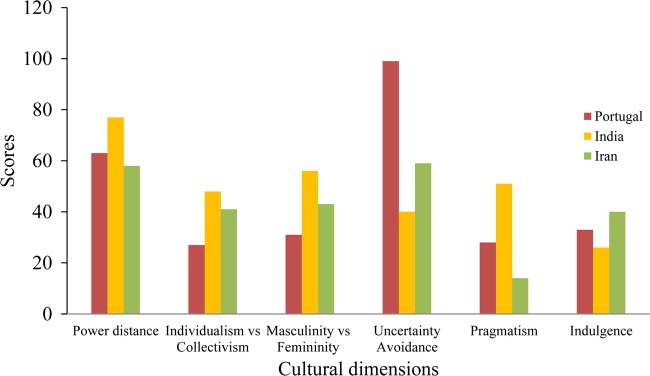Figure 2.

Bar graph showing Hofstede’s cultural dimension values for Portugal, India and Iran. A high score power distance expresses that the less powerful members of a society accept and expect that power is distributed unequally. A high score on Individualism versus Collectivism can be defined as a preference for a loosely-knit social framework in which individuals are expected to take care of only themselves and their immediate families. A high score on ‘Masculinity versus Femininity’ suggests a preference in society for achievement, heroism, assertiveness and material rewards for success as opposed to cooperation, modesty, caring for the weak and quality of life. A high score on ‘Uncertainty Avoidance’ suggests members of a society feel uncomfortable with uncertainty and ambiguity. A high score on ‘Pragmatism’ suggests the society encourages thrift and efforts in modern education as a way to prepare for the future, as opposed to relying on time-honoured traditions. A high score on ‘Indulgence’ suggests the society follows gratification of basic and natural human drives related to enjoying life and having fun, as opposed to restraint in such activities based on social norms.
